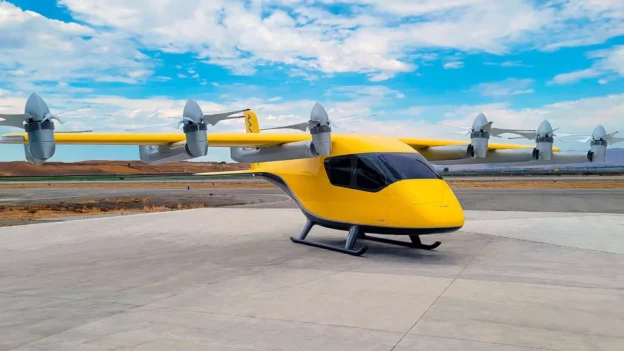Aeronautics company Boeing revealed its strategy to diversify into the flying car sector in Asia , with the intention of deploying electric vertical takeoff and landing (eVTOL) air taxis by 2030. Todd Citron, the company’s Chief Technology Officer, shared with Nikkei Asia that these vehicles will be developed through its subsidiary Wisk Aero, highlighting their autonomous character as a hallmark in the field of eVTOLs.
Before expanding into the Asian market, Boeing will focus its efforts on obtaining the necessary certification in the United States . It is still to be decided whether they will operate the air taxi service directly or sell the aircraft to third parties, but the priority is clear: secure approval from regulatory authorities.
“ Wisk will first focus on achieving certification in the US before seeking similar approvals in Asia ,” Citron explained. This step is essential for the company in its quest to establish a presence in the Asian market.
Flying cars in Asia: Boeing’s strategy
Boeing’s entry into this innovative transportation segment aims to alleviate urban congestion in Asia , as well as explore more sustainable mobility options. The company has invested $450 million in Wisk, reinforcing its commitment to the development of advanced urban air mobility solutions.
In Japan, Boeing has opened a research and development facility in Nagoya, adding to the company’s global network of R&D centers that already operates in places such as Australia, South Korea and India. This base stands out for being the company’s seventh outside the US and plays a crucial role due to its proximity to essential suppliers and Nagoya University, where collaboration has been key to access to innovative talent.
Despite competition from local startups such as SkyDrive and German firm Volocopter, which are also seeking to deploy air taxis for the 2025 Osaka World Expo , Boeing distinguishes itself with its focus on eVTOL autonomy . The company is not only focusing on technological innovation, but also on how these vehicles will be integrated into the urban infrastructure and daily life of Asian cities.
The following video is the last one shared by the company on its YouTube channel.

Autonomous flights will benefit urban areas in Asia. Source: Wisk Aero.
About the manufacture of eVTOLs
The current phase of development includes the design of digital tools for aircraft manufacturing, research into sustainable aviation fuels, hydrogen fuel cells and composite body materials, including recycling technologies and methods to increase production capacity and factory automation.
“ Another great opportunity we have in this region is access to exceptional talent and we have worked closely with Nagoya University, among others, to attract and develop this talent ,” highlighted Shaffer.
Boeing’s commitment to urban mobility, in addition to being a futuristic vision, is a reflection of technological evolution in transportation. As these eVTOL vehicles begin to operate, a transformation is anticipated in urban and transportation policies, necessary to adapt cities to the new reality of air taxis, thus guaranteeing safe and efficient integration into the fabric of urban life.
Follow us on social networks and don’t miss any of our publications!
Inspenet.com YouTube LinkedIn Facebook Instagram X
Source and photo: infobae.com

